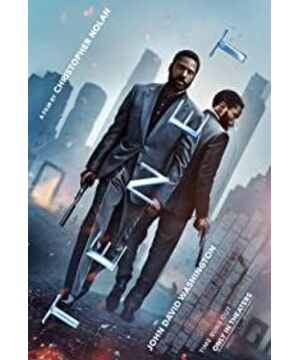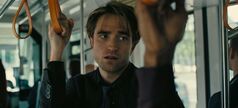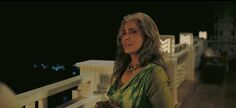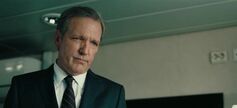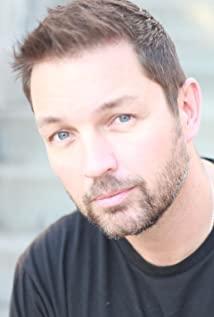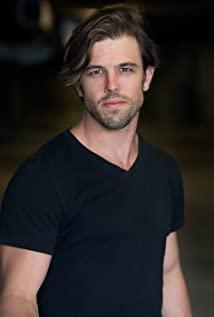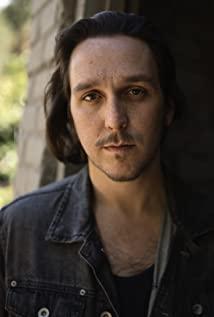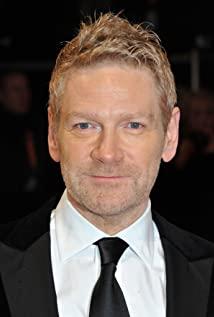This article talks about two issues:
- Ouroboros-style paradox of time how to produce? How to crack? - the name of the movie's why is called "TENET" (Creed)? What does Nolan want to express.
This article is full of spoilers. If you have not watched the movie, it is strongly recommended to collect this article and review it after watching the movie.
Breaking the title: What's so good about the movie "Creed"
"Creed" is obviously another time-based movie. There are too many excellent works on the same theme (not limited to movies). Here I will briefly list some: "Pre-Destination", "Source Code", "Advent", "Twelve Monkeys" ", "Terminator" series, "Loop" (Loop), "Your Name", American TV series "Watchmen", Hardware Man's "Time and Space Clue", Nolan's own "Interstellar", game "Stone of Destiny" Door "Wait...
The most amazing "Punchline" of this type of time series movie is to create a ouroboros-like story-the past determines the future, the future determines the past, causes produce results in the future, and results produce in the past The reason-resulting in "Predestination" (Predestination).
People who have in-depth research on such time-series works, such as Wild Minzhe himself, have already guessed the structure of the entire movie after sitting in the cinema for 20 minutes. I was desperately searching for details the first time I saw it.
Therefore, the protagonist in the movie added the "creed" from his bewildered look until he finally found out that he was the creator of the "creed". The idea of this kind of ouroboros story itself is not original.
But Nolan's movies still have a huge leap compared to similar themes, not in "Punchline", but in "melody" and "Wordplay".
First, the audio-visual text of "Believer" is otherworldly, and for the first time invented the audition spectacle in which time is played forward and backward. Its imagination is astonishing, and the polishing of the script, the arrangement and scheduling of performances, and the audio-visual effect behind it The integration of the world’s top film industry reflects the "industrial strength" of the world's top film industry. I won't discuss this aspect anymore.
Second, "Believer", like all Nolan's films, is not satisfied with creating an audio-visual spectacle itself, but uses this spectacle to make his personal expression and expound certain values of his to the public. In this movie, his sermon is naturally the word "creed" itself.
1. Why did ouroboros destiny come about?
What I want to talk about next is the philosophical analysis of the "Ouroboros" paradox (the paradox of time), which is not only applicable to creeds, but also to all works of similar themes.
1.1 hour cone
We can only see what is in front of us, not what is behind our heads. Because of the structure of the eyes and faces, there is a cone-shaped area for humans to receive external light, which is called the "cone" here, and things outside the cone are invisible.
Ascending to physics, light has "speed", so the boundary to which a light source can diffuse in time and space is limited. We introduce time into the coordinates, and all the information transmitted by light is similar to "view cone". Light cone". Outside the boundary of the light cone, no light information can be obtained.
Further up to the philosophical concept of "time", all the information that each of us may receive in a specific time is within the bounds of our lives. A concept can be created here, "the cone of time". It does not matter whether "cone" or "cone" is. The important thing is whether there is the so-called "horizon", or the boundary of information.
What happens outside the "cone of time" is unknowable to us.
1.2 Unknowable outside the time cone
We assume that the "cone of time" can be controlled artificially, what will happen? For example, cut off all the connections between the current children and the past history, will they know what is the BB machine, the big brother, and the deduction machine? Will they know what "OICQ", "surfing", and "MUD" are?
For example, if the people’s history textbook on an isolated island is tampered with, just like the movie "The Divergent", can they still realize which continent their ancestors, culture, religious idols, and languages used come from? Do they think they are human beings of the "island chain language family" on the surrounding island chain?
OK, this is a simple and easy-to-understand truth. Our knowledge of things depends on the range of information we can access. Therefore, the wonderful story of "Ouroboros" is not necessarily determined by the agnostic concept of "God" or "Destiny". It can also logically come from the boundary effect of "Cone of Time".
To put it simply, I will not discuss whether the universe is unitary or plural. First, suppose that a time traveler can go back to the past to create a different version of the future, and then the time traveler will leave or die. May I ask, can human beings living in a changed future obtain the "information" of the version of the world in which the time traveler lives?
The conclusion is that there is no way to know. Because that information is outside the "cone of time" in our philosophy.
1.3 "Creed" is the story in "Time Cone"
Therefore, the time traveler paradox, even if it can really create ouroboros-like stories-for example, from the destroyer sent by Skynet in the future, the remains left by scientists in the past made Skynet (other examples are not dramatic) Thoroughly)-It is also impossible to argue that causality is wrong. Under the logic of strong causality, it is very likely that the real "cause" occurred outside of the "cone of time" we are in.
Returning to the movie "Creed", the "protagonist" is both the recruiting object of the "Creed" organization, and finally the audience finds that he is also the founder of the "Creed" organization. Just like the "ghost" discovered by the little girl Murphy in "Interstellar", there is a coordinate that made his father become an astronaut for NASA to explore aliens, but in the end his father used it in the four-dimensional space found by falling into a black hole." "Gravity" transmits the coordinates to Mofei in the past.
——These are all stories that our audience saw in the "cone of time" created by Nolan.
If time travel can create multiple versions, the "creed" organization is not necessarily created by the "protagonist", and time travel does not happen once, but may have happened many times in philosophy, each time creating a new one. The "time cone". This is a spiral process
Until it finally became a perfect Ouroboros, the future was determined by the past. The "first push" disappeared from the "cone of time", and the plutonium 251 that could cause the destruction of mankind was imprisoned like Domam. The cage of time, like the purple octopus who shouted to the little girl, "Don’t come close to me, ahhhhhhhhhhhhhhhhhhhhhhhhhhhhhhhhhhhhhhhhhhhhhhhhhhhhhhhhhhhhhhhhhhhhhhhhhhhhhhhhhhhhhhhhhhhhhhhhhhhhhhhhhhhhhhhhh
At this time, a final and stable "cone of time" is produced.
1.4 Possibility under strong causality?
If strong causality is the premise, a spatiotemporal detective like me will become as keen as Kira Yoshikage, discovering the possibilities behind it from the information remaining in the current temporal cone.
Just as I gave a minimalist solution of seven reincarnations in the film review of "Pre-Destination", you can also use wisdom to guess how many reincarnations and change history to produce the ouroboros in "Creed".
Under the logic of strong causality, it is clear that the "Creed" can be speculated at least four times.
In the Nth version, the "Creed" group went back to the past and recruited us "Protagonist.n". At this time, "Protagonist.n" is not the creator of the creed, and this Ouroboros does not exist in his memory. After stopping the big bang, he just went to a new version of history to make sure that "in the future" someone would stop the explosion. This time, "Protagonist.n" recruited "Neil.0" in the past, but Neil's fate is still unknown to them. "Neil.0" helped "the hero.n+1" save the world and sacrificed. After "the protagonist.n+1" saved the world, he went to the past to recruit "Neil.1". This time he knew that Neil would die for himself in the future. This was the first time the "Neil" series met and knew his own destiny. Protagonist. After "Neil.1" was trained in "Protagonist.n+1", he helped "Protagonist.n+2" to save the world. "Protagonist.n+2" is different from "Protagonist.n+1", this time both sides know each other's fate. So we finally got "the protagonist.n+3", he was saved by the "Neil.2" version and added "creed". When saving the world, it was discovered that both sides knew each other’s fate. Through Neal’s words, "the protagonist.n+3" believed that he was the founder of the "creed" organization. He went back to history and killed the other backbones and founded it himself. creed. And the version in the movie "Creed" we saw is already the N + 3 + x version. These x versions are all ouroboros in the causal cycle and no longer cause differences. All the causal versions smaller than n + 3 disappear outside the "cone of time".
1.5 Can history be changed?
Many people think that the history that takes place in the "Creed" is unchangeable. This view is wrong. According to the logic of "Creed", history may or may not be changed. People in history don't know it, because human consciousness may be just a feeling.
If history really cannot be changed, then the efforts of the big villains will be meaningless, and people in the future will not need to spend this effort to try.
As for changing history, did it create parallel time and space? Or is the future of the previous version "annihilated" and does not exist in the "reality"?
These are not important. Because these are all information outside the "cone of time", just like the universe before the Big Bang, we don't know it.
1.6 Murders discovered by spatiotemporal detectives
As spatiotemporal detectives, we discovered the key information of other time cones remaining in the current time cone:
- Neil was recruited "hero" - recruited Neil's "hero" already know the fate of Neil
With only these two pieces of information, we can infer the existence of at least four version histories.
Then continue to follow the logic of strong causality, we can find a horrifying possibility: "The protagonist" is not the creator of the "creed" in multi-dimensional time. Before the N+3 version, every "protagonist" may be "creed" "Cleaned up.
But in the N+3 version, he "counter-attacked", obliterated the possibility of other causes and effects, killed all insiders in history, and became the creator of the "creed" after the N+3 version.
The most frightening thing is, does the "protagonist" think that this is "destined", or is he wise enough to "change his fate"?
Hahaha, this is not important. Because the one that stays in front of us is called "Reality" in Neil's own words.
To protect the existence of this "reality", the fewer people who know the retrograde device, the better. It doesn't matter whether this person is the "protagonist" or another unknowable "first push" besides the "cone of time". Because ouroboros is the "steady state" in the time paradox.
1.7 Ouroboros is the steady state in the time paradox
Once time travel is established, history may "iterate" countless versions, and the possibility of destroying all mankind will never end. If we set the protagonist as a super detective who wants to end all historical paradoxes, he must design the perfect Ouroboros.
When the promoters of the birth of the old history recruited the past self in the new history and formed the time-space Ouroboros, the countless possibilities of the countless versions derived from time travel collapsed into the only "reality" . All possible evils disappeared from this single "reality".
As in a certain divine work, the time traveler whose purpose is to counter-terrorism is regarded as a terrorist, and he was eventually shot and killed by his own recruited past self.
And for some reason, this time traveler has no parents outside of himself, and no children outside of himself. He stands alone in the vastness of time and space and becomes a perfect closed loop.
In this way, the "grandfather paradox" was eaten by the Ouroboros itself, and there is no fear of any reason that the time traveler with the ability to change his life would change his fate against the sky. He/she became the only one in the equation of time. untie.
This is the steady state of the time-space paradox, and the common and only goal of all time-space travelers who want to end the time-space paradox.
1.8 Ouroboros in Nolan's Creed is imperfect
Nolan seems to have created a space-time ouroboros in "Creed", forming a steady state. But this steady state does not hold. Because Nolan designed the space-time travel machine to allow "reverse travelers."
Although it is possible to become a "reverse traveler" through the revolving door of time and space, the length of human life is still limited. Just as a person who can speed up time swimming may not be able to catch up with the dolphins, a "reverse traveler" can only travel to the past decades ago.
The historical occurrence in the "Creed" shows that the "reverse travelers" of the "future" pass on information from generation to generation, and it takes many generations to reach the present.
What does this mean? It means that retrogrades at any node in the history of retrogrades have a choice. The Hollywood movie ancestor of the former Soviet madman in "Creed" is just one of countless options, created by a certain past from countless futures.
If we are retrogrades in 2100, the formation of ouroboros in the 2020 "Creed" will only mean the failure of a scheme. In fact, there should be dozens or hundreds of programs in progress "simultaneously".
Unless Nolan can raise the Ouroboros to the future of inventing the reverse machine, forming a closed loop on a wider time axis. This closed loop eliminates the time machine in the cycle of time, just like the plutonium 251 that can never reach the future. The story is complete.
2. Why is the name of the movie called "creed"
Readers who have read all the content of the first paragraph will know that Nolan’s "Creed" apart from the "Punchline" of "Time Ouroboros", what is more important is how his propositions in the field of humanities can be used in the "destiny theory" Choose between "and "free will".
The "destiny theory" recognizes the only pessimistic outcome in the future, while the "free will" theory believes that the future is determined by people's choices, and there are different opportunities.
The big villain, the Russian-Anglo, chose the "destiny theory." Since the future of mankind will inevitably lead to the exhaustion of resources, after inventing the retrograde machine, the future mankind wants to return to the post-Cold War era to destroy "time" itself, so that humans in the past have a chance to choose again.
Therefore, the time travel effect produced by the retrograde machine brings a certain "destiny" of mankind to the "now". How will people choose now? Nolan gave his answer through the protagonist's actions.
2.1 Three choices of the protagonists
After the torture, the actor finally understands the principle of the retrograde machine. He made the first active choice. Given the known loss of Plutonium 251, he still wants to go back to the past. The original motive was actually to save the heroine he had failed. This motivation is similar to the motivation given by Nolan in "Interstellar", which is "love".
The second active choice was made by the male second Nick. When the dust of the war settled, he still walked back to the battlefield. Because he knew that only he could unlock the last lock and stop the explosion, even though he had to pay the price of his life. His generosity to death is so calm that he doesn't even need a tragic speech to cheer him up, only a slight smile to the protagonist.
The third active choice is that the protagonist knows that he will return to the past to recruit Nick. In the end, Nick will sacrifice in front of him in order to open the door.
Therefore, the ouroboros structure of the whole story seems to determine the fate of everything, but every key option that drives the fate is a "choice" made by the protagonist, individuals who follow their inner morality and justice.
This is "free will" under the premise of "destiny", and it is Nolan's answer for the dual choice of "destiny" and "free will".
2.2 "Wordplay" behind the term TENET (creed)
TENET is a palindrome, and everyone must have seen it.
In the movie "Creed", the appearance of the word "creed" appears as the name of the organization. It is easily reminiscent of various mysterious organizations that appeared in the history of Western religions. So the expression given to the audience is just the name of an organization.
The characters in the story use their actions and choices to "interpret" the meaning of Nolan's "creed". It is not literal dogmatism, not mechanical obedience to existing dogma. Obedience itself represents a choice of a character facing a known destiny.
Obviously, until the final result of following an action is not good for oneself, he resolutely chooses to follow it, because the protagonists' morality and justice from their hearts make them recognize the process and the meaning, regardless of personal gains, losses or sacrifices.
This theme is not Nolan’s original creation, it is too common in literary and artistic works. What impressed me most was Qi Beilin who watched the first part of "JoJo's Bizarre Adventure" in elementary school. He knew from the teacher that he was going to die when he was practicing the wave kung fu, but when he encountered this fate in the battle, he chose to take a big step forward, calmly accept his ending, and passed the wave to JoJo Thus won the final victory.
The hymn of mankind is the hymn of courage. When I saw Nick smile and walk towards his death in "Creed", I was also appreciative in my heart.
If it is to be explained in Chinese, the closest word may be "义".
2.3 From "Destiny Theory" to "Inescapable Obligation"
The dual opposition between "destiny" and "free will" in the West is incompatible with Chinese culture. Without a special interpretation, it is difficult for us to understand what is "free will" that pops out in a character dialogue.
Because in Chinese culture, the real opposite of "fate" is "righteousness".
Facing the proposition of "destiny", the core of Chinese cultural and humanistic spirit has its optimistic side, such as "Hou Yi shoots the sun", "Jingwei reclaims the sea", "Da Yu governs water", "Foolish man moves mountains", and further to the contemporary "The Foolish Old Man Moves the Star" ("The Wandering Earth") and so on. This is completely different from the solution of monotheistic religion, "Revelation" and "Noah's Ark".
The bigger difference is actually on the pessimistic side. Different from "Sisyphos" or "Icarus" (wax-winged bird man), which leads to destruction, when the Chinese make pessimistic judgments about their destiny, even if they are "panic-stricken as a dog of the bereavement", they pursue The highest ideal is still "knowing that it is impossible to do it."
When to stop "for it"? The answer to us said, "Born without rest", a place of real rest, looks like "Sui RuYe, Zai RuYe, Grave RuYe, Li RuYe, knowing what is resting." As the saying goes, "Dedicated to the end of the day, after death".
Under this logic, whether the prediction of fate is an "overfitting" error or a prophetic insight, it will not affect the decision of "righteousness". Because of this, there is no need for opportunistic views such as "free will" (believing that "chance" and "odds" exist) to deny the possibility of "destiny" and avoid predicting the future.
Since it is "indispensable", why are you afraid to face all possible destinies?
The real protagonist "Nick" in "Creed" is closer to the "sacrifice" of Chinese culture.
It can be seen that Nolan's "Creed" has a further development than the fatalism in his "Interstellar". "Creed" has the same story of ouroboros as "Interstellar", but the good ending of "Interstellar" comes from the protagonist's "ignorance" of fate, while in "Creed" it is "fearless" of fate.
2.4 TENET's deeper view of "the perfect elite"
As mentioned above, Nolan gave him his own understanding of the word "TENET" through the film. This understanding itself is the inheritance and development of the historical process of Abraham monotheistic religion leading to liberalism.
The monotheistic religions in the past are all based on the "fate theory". Everyone is a slave of the "stone of destiny" and must redeem his original sin before the prophetic apocalypse or doomsday judgment. This religious philosophy, subordinate to church rule, once became the only cohesive force of Western European feudal society divided into hundreds of small states, but it gradually lost its influence during the Age of Navigation and the Renaissance. Because the new relations of production needed free and cheap labor, they did not want to face the overbearing feudal lords above the serfs.
The "liberal" thought revived on this economic foundation retains the ability of "monotheism" as a social mobilization and hatred mobilization under the need of colonialism, and at the same time adds a new connotation of "free will" to it. When people can talk to the "God" and choose their own "destiny", it will politically break the "church"'s control over labor in the agricultural era.
Therefore, monotheistic "destiny theory" and liberalism "free will" theory have become the themes of literary creation after the Western Renaissance, because the original motivation for literary creation is to interpret and resolve "conflicts."
Nolan's inner choice is his consistent elite theory of goodness.
Regardless of the fact that human beings in "Creed" will eventually reach the end of the day after their resources are exhausted, it is essentially the same thing as Gotham in "Batman", which is deteriorating day by day. Nolan never denies the pessimistic prediction of "destiny" for the self-destruction of human society (the basis of monotheistic religion).
The mysterious protagonist who created the "creed" holds the greatest "power" in his hands, but he is a person who has "passed the test", and his heartfelt good decision made this lonely man who killed all insiders just In driving "necessary evil" to protect the common interests of all mankind.
Therefore, the protagonist of "Creed", like Bruce Wayne who can monitor everyone's phone calls in Gotham City, and the vigilant "Batman" who transcends all legal restrictions and is uncontrolled, is the ultimate good that can get out of the silt without getting infected.
Nolan has always believed that the world needs a very small number of super elites, the "tested" elites, who break through the constraints of laws and dogma, in order to make a difference and protect the well-being of all mankind. This view is the view he repeatedly sells in most of his films.
And the movie "Creed" elevated it to the mysterious organization "Creed", and I vaguely felt the deeper intentions of Nolan's "movie sermon".
2.5 Nolan's foreshadowing
The movie "Creed" tells two motives. One is that humans in the future cannot survive, and they want to use a time machine to destroy time itself, so that humans in the past have a chance to choose again. This opportunity is based on chaos.
Another motivation is that the "creed" organization represented by the protagonist created the Ouroboros in time through its own choices and sacrifices in order to protect humans in reality, avoiding the demise of mankind.
At this time, the height of the great god Nolan is reflected. As a story, "Creed" only finished the second motive, but did not answer the first one. When the explosion that destroys time is prevented, how does the organization "Protagonist" and "Creed" view the destiny of the depletion and destruction of human resources that is bound to come in the future?
Nolan did not answer this question. It was definitely not that he did not have this height or ability, but that he did not send it out and left it to the audience to think about. When he does not answer, no one can answer for him. I can only infer one possibility from the movie "Creed":
Since the "creed" this mysterious organization can prevent the time annihilation tragedies that occurred in the "past", they also have the ability to change the fate of resource exhaustion that may occur in the future. As Nolan explained in "Batman 3", Gotham needs a righteous policeman and a dark knight. If it is not for Bruce Wayne, it can be the next generation of Robin.
2.6 Four routes derived from "fate theory" and "free will"
"Destiny" and "free will" are one of the core conflicts in Western culture after the Renaissance. From this, four routes were derived, which were repeatedly presented in Western literary and artistic works.
The first is the hatred of "destiny", which rises to hatred of all orders, thus fictionalizing a doctrine that destroys all orders and creates "Chaos" to destroy "destiny". It is usually packaged as "Anazi" by literary works (but many Anakisists themselves oppose this interpretation).
Whether it is the "League of Shadow Warriors" in Nolan's "Batman", or "Joker", or "Bain" who inherited the master ninja, they all have the same goal, bringing Gotham and the world into "Chaos" (Chaos). In "Creed", the nuclear bomb that destroyed Gotham became an algorithm bomb that annihilated time, which is essentially the same thing.
Nolan always lets the protagonists beat these villains miserably, but he has never denied the ultimate motive of these villains, that is, the world will go toward self-destruction due to the fall of mankind. In fact, Nolan has always used the rendering of these villains to give his own solutions.
The second route is the fear of "destiny", which turns into a transformation of destiny at all costs. The most typical path is "reverse utopia", creating an extreme totalitarian power to control mankind, forcing people to leave the doomed self-destruction.
This totalitarian can be the "big brother" staring at everyone, it can be an artificial intelligence system that monitors the overall situation (such as "Me, Robot"), or a super predictive algorithm that arranges everyone's fate (the "Western World 2" Lei Hebo)...
当然,他们也注定被拥有"爱" 和"正义" 的主角们揍得很惨。
The third route is the route of the protagonists. Out of their "love" for mortals, they can neither accept the clown nor the big brother.
So their solution is to get rid of the "bad guys", "believe in human love", and let people and society choose for themselves. So Saint Seiya just killed Poseidon, Katniss of The Hunger Games just shot President Cohen, and Delores of Westworld 2 just killed Leihobo.
These good people are only responsible for destroying bad people. It is not their own business what the future world will be. Therefore, they can stand on the moral high ground and live a life without burdens without taking responsibility.
The fourth type is Nolan's route. Neither is a big brother, nor is it pure luck, but requires a handful of kind but capable super elites.
Such a person must be self-examined enough, kind enough, and tested before they can master that much power. And such people must not be in power, but wander outside the system, so they are not afraid of being "power will inevitably lead to degeneration."
These kind-hearted elites hide in the dark, and can jump out at any time to beat the first few people, use their spirits to infect other people, and secretly determine the direction of society. This is probably the highest state of "liberalism", as Lao Zhuang said, "it's just to kill the horse." Most Hollywood superhero movies are beating similar ideas, but Nolan's audio-visual texts do the best.
2.7 Our fifth way?
In fact, whether it is the "destiny theory" or the "free will" theory, the reason for the duality is that they are unified in a deeper philosophical position-elitism.
The theory of "original sin" advocated by the monotheistic religion is that the "destiny" of mortal people's degeneration and destruction resulted from "original sin", which can only be rebuilt through the "great cleansing" of the "god". This is to blame all civilians as the root cause of social unrest, and to spiritually deny the ability of civilians to change their destiny, thereby allowing them to alienate and accept religious enslavement.
And for the very few people who can obtain "salvation" in this world, religion attributes all virtues to them. These individuals with noble morals not only achieved self-salvation, but also sacrificed themselves to bear the sin karma of the world to further guide and save other mortals.
Therefore, mortals with original sin lead a life of "destiny", while elites with noble morals and compassion for the world have "free will". The two seem to be opposed but never contradictory.
The difference between the above four roads is actually the difference in the routes of the elites. They choose to destroy mortals, rule mortals, let mortals, protect mortals, and then several elites fight back and forth to determine the fate of all mankind.
Isn’t the "creed" like that? The "creed" organization prevented a non-existent explosion and saved all mankind, but we only need to live in this result.
Human society certainly has a fifth way. And the fifth road is the opposite of all four roads. It does not think that the elites with "free will" made history, but the mortals who are regarded as "destined" made history.
We also once had a super prophet who looked farther than all the people in the world and saw the future of decades, hundreds or even 10,000 years.
In the age of this prophet, there are many "prophets" in the world who think they have seen the only destiny of the age. Some of the fate of the times they saw was the five-stage theory of history, which could only rely on the elites of the advanced era, and could not rely on the mortals of the backward era; some were technological determinism, because the enemy will inevitably be defeated, so the inside must be settled first, and the curve is needed. To save the country and bear the burden of humiliation; some are industrial determinism, which can only be one-sided, buy is not as good as rent, and rely on the support of the strong to develop.
Our prophet disagrees with these "destinations" and never believes that because of the ignorance of mortals, he can only rely on other elites-in his own terms, this is called "unbelief in evil."
As a prophet, he never said that because of the prophet, the world must listen to me. According to his words, he is just a processing factory, and his prophet comes from all the materials provided by mortals.
The prophet spent his entire life trying to tell every mortal the various futures he saw in this processing factory. He believes that only by the awakening of mortals, the organization of mortals, and the action of mortals—can produce a huge component beyond the time segment at a certain node in the long history of countless possibilities, thereby affecting the entire history. Direction.
The most suitable for the identity of this prophet is the "teacher". Under his teachings, mortals who were burdened with all kinds of original sins such as "ignorance", "cowardice", "a pan of sand", "backwardness", etc., hewed out the Tianhe on the cliffs, dug out the oil in the wilderness, and went below zero. In the ten-degree cold winter, wearing rubber shoes charged back the world's most powerful enemy, and initially established a complete industrial system on a poor and white land.
It is precisely because countless such mortals have seen the possibilities of various destinies under the guidance of the prophets, and their common burst of energy has changed the fate "destiny" predicted by all elites.
The "reality" that our generation lives in is exactly the "future" that their generation strives for. We are the witnesses and heirs of history.
Because of this insight, even though as a fan of Nolan, I like to watch every piece of him, I must criticize his deep values and ideology in almost every piece.
Nolan's pessimism about most people's "fate theory" and his optimism about the "free will" of a handful of the best elites are not in line with the facts I see.
But if contemporary people shrink their "view", cut off the connection with history, and give up their prospects for the future. Maybe it's really like watching the movie "Creed", you can only see a lonely, causal cycle, and ouroboros-like historical wheel. When people accept fate, fate becomes reality.
View more about Tenet reviews


